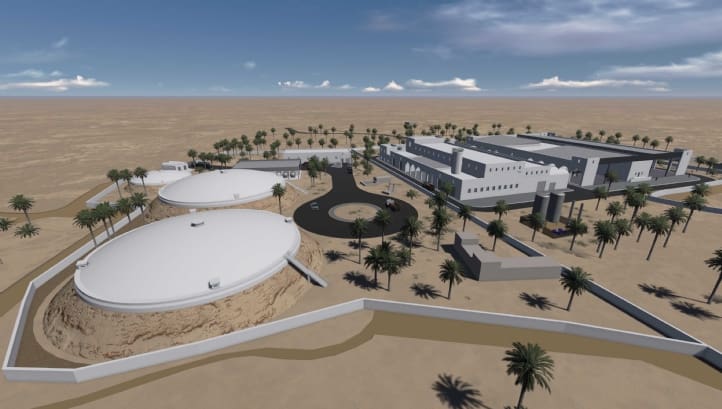Tunisia’s first desalination plant was officially opened by prime minister Youssef Chahed on 3 May 2018.
The design, build, commission and operate contract for the project was awarded to a joint venture of FCC Aqualia and Inima in 2014, by client Société National de’Exploitation et de Distribution des Eaux (SONEDE).
The cost of the project was $74 million — according to a radio interview given by SONEDE president and director general Mosbah Helali in February 2018 — of which €60 million ($71 million) was through a loan from German development bank KfW signed in 2013. Additional funds were provided by Agence Française de Développement (AFD).
The full project scope included seawater intake and brine outfall systems, a plant to remove iron from well water, a drinking water pumping station, and supply and installation of 23.7 kilometres of mains. The associated marine and civil engineering works were designed to enable an increase in capacity up to 75,000 m3/d in the future.
The island of Djerba, off Tunisia’s south coast, is home to around 150,000 people.
Tunisia wants to build three more desalination projects, in Sousse, Sfax, and Zarat in Gabes Governorate.
In July 2017, SONEDE signed a loan agreement with Japan International Cooperation Agency (JICA) for JPY 36.7 million ($328 million) for a desalination plant at Sfax city. The proposed plant will have capacity of 100,000 m3/d, and the loan covers construction, procurement, installation of water transportation pipes, and consultation services including bidding assistance and construction supervision. The completion date is set for 2023.
Further, Tunisia is building six groundwater treatment plants.
